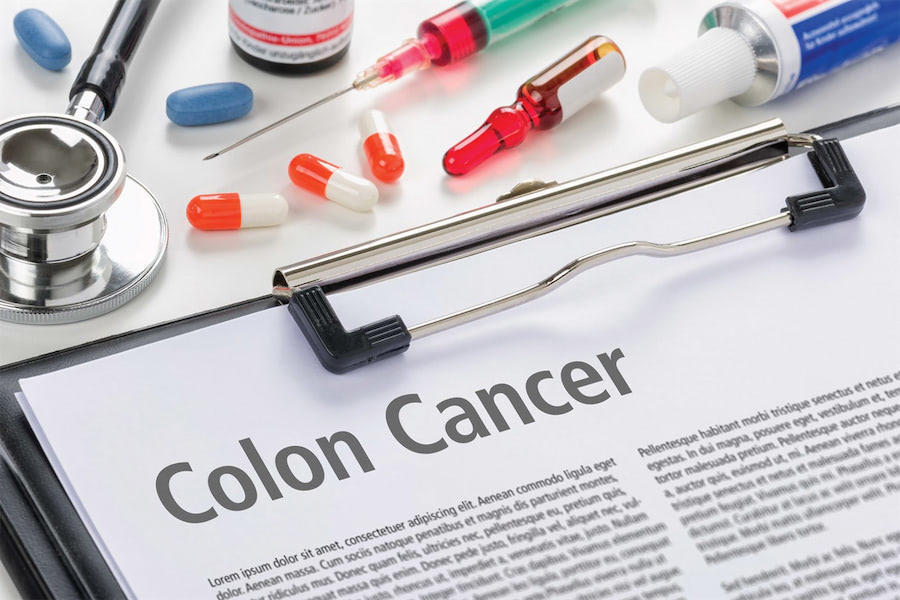
What is Colon Cancer?
Colon cancer, also known as colorectal cancer, occurs when abnormal cells in the colon or rectum grow uncontrollably. This type of cancer often begins as small, noncancerous growths called polyps, which can develop into cancer over time. Early detection and removal of these polyps through screening can prevent colon cancer from developing.
Who is at Risk?
Colon cancer can affect anyone, but certain factors increase the risk. These include age, a family history of colorectal cancer, inflammatory bowel disease, and certain inherited genetic syndromes. Lifestyle factors, such as a diet high in red or processed meats, smoking, and lack of physical activity, also contribute to the risk. Recognizing these risk factors and discussing them with your healthcare provider is crucial for prevention.
Symptoms of Colon Cancer
Early Symptoms
In its early stages, colon cancer may not cause noticeable symptoms. However, as the cancer grows, it can lead to subtle changes in bowel habits, such as persistent constipation, diarrhea, or changes in stool consistency. Some people may experience rectal bleeding or notice blood in their stool, which can be bright red or dark in color.
Advanced Symptoms
As colon cancer progresses, symptoms may become more severe. These can include unexplained weight loss, persistent abdominal pain or discomfort, weakness, and fatigue. A feeling that your bowel doesn’t empty completely after a bowel movement can also be a sign of advanced colon cancer. If you experience any of these symptoms, it’s important to seek medical attention promptly.
The Role of Colonoscopy in Screening
What is a Colonoscopy?
A colonoscopy is a medical procedure used to examine the inside of the colon and rectum. During the procedure, a long, flexible tube with a camera on the end, called a colonoscope, is inserted into the rectum. This allows the doctor to view the entire colon and look for any abnormal growths, such as polyps, or signs of cancer. Polyps that are found during a colonoscopy can be removed immediately, reducing the risk of them developing into cancer.
Importance of Screening
Screening is crucial for the early detection of colon cancer. Since colon cancer often doesn’t cause symptoms in its early stages, regular screening can catch the disease before it progresses. Colonoscopy is considered the gold standard for colon cancer screening because it allows for both detection and removal of polyps during the same procedure. For most people, screening should begin at age 45, but those with a higher risk may need to start earlier.
What to Expect During a Colonoscopy
Before a colonoscopy, you’ll need to follow a special diet and take a laxative to empty your bowels. The procedure itself usually takes about 30 to 60 minutes and is performed under sedation to ensure comfort. After the procedure, you may experience mild cramping or bloating, but these symptoms typically resolve quickly. Your doctor will discuss the results with you and recommend any necessary follow-up care.
Other Screening Methods for Colon Cancer
Fecal Occult Blood Test (FOBT)
The fecal occult blood test (FOBT) is a non-invasive screening method that checks for hidden blood in the stool, which can be an early sign of colon cancer. This test is simple and can be done at home. If the test is positive, a colonoscopy is usually recommended to determine the cause of the bleeding.
Flexible Sigmoidoscopy
Flexible sigmoidoscopy is similar to a colonoscopy but examines only the lower part of the colon. This procedure is less invasive and can be done without sedation, but it does not provide a full view of the entire colon. If abnormalities are found, a follow-up colonoscopy may be necessary.
CT Colonography
CT colonography, also known as a virtual colonoscopy, uses CT scanning to create detailed images of the colon. This non-invasive test is an alternative for those who cannot undergo a traditional colonoscopy. However, if polyps or other abnormalities are detected, a standard colonoscopy is still required to remove them.
Conclusion
Summary of Key Points
Colon cancer is a serious disease that can be effectively prevented and treated if caught early. Regular screening, particularly through colonoscopy, is essential for detecting polyps and preventing their progression to cancer. Understanding the different screening options and following your healthcare provider’s recommendations can significantly reduce your risk of colon cancer.
Encouragement to Take Action
If you’re at the recommended age for screening or have risk factors for colon cancer, don’t delay in scheduling a colonoscopy or other appropriate screening tests. Early detection is key to successful treatment and prevention. Talk to your healthcare provider about your options and take the necessary steps to protect your health.
